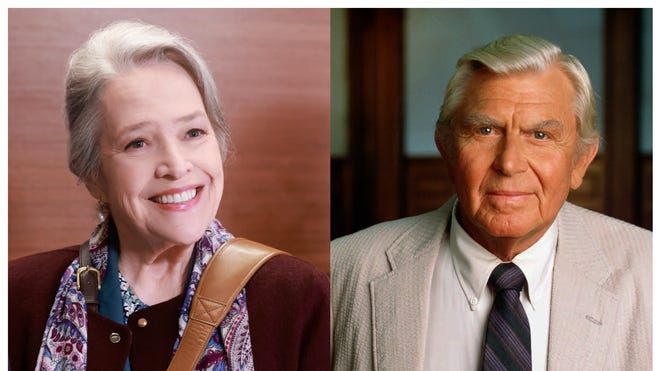
“A woman my age would never have such a role.” The words hang heavy in the air, not just as a lament from a fictional character, but as a silent echo in countless real lives. This poignant declaration, whether uttered in a hushed whisper or a frustrated cry, encapsulates the insidious nature of ageism, particularly as it often intersects with gender, rendering older women invisible or irrelevant in spaces where their experience should be a prized asset. Yet, amidst this societal dismissal, narratives like those found in the classic television series Matlock offer a fascinating counterpoint, providing a form of validation that challenges the very premise of such age-based limitations.
The quote itself, “A woman my age would never have such a role,” speaks volumes about the societal roles deemed appropriate – or, more accurately, inappropriate – for women past a certain arbitrary age. Imagine Bates, perhaps a brilliant legal mind, a seasoned executive, or a community leader, whose contributions are increasingly overlooked. Her ideas, once lauded, now meet with polite but dismissive nods. Her ambition, once seen as drive, is now perceived as a misguided attempt to cling to youth. The “role” she desires might be one of authority, of romance, of adventure, or simply of continued relevance. Society, in its relentless pursuit of youth and novelty, often pushes women like Bates to the periphery, suggesting their primary role is now one of quiet support, or worse, non-existence. This isn’t merely about physical appearance; it’s a systemic devaluing of wisdom, resilience, and a lifetime of accumulated knowledge, replaced by a preference for an often untested, younger demographic.
Bates, in this scenario, becomes the embodiment of this ageist plight. Her experiences are a mirror reflecting the everyday indignities faced by older women. Perhaps she’s overlooked for a promotion in favor of a less experienced but younger male colleague. Maybe her suggestions in a board meeting are summarily dismissed, only to be applauded when a younger man repackages them as his own. She might find herself struggling to re-enter the workforce, her decades of expertise viewed as a liability rather than an asset, her vibrant spirit slowly dulled by constant rejection. The invisible shackles of ageism constrain her, not with physical force, but with a pervasive cultural narrative that dictates her capabilities and her worth based on a number rather than her inherent abilities or character. She is, in essence, the woman whose age precludes her from the very roles she is most equipped to fill, a walking testament to the truth of that sorrowful quote.
It is against this backdrop of pervasive ageism that Matlock emerges as a powerful, albeit subtle, source of validation. Ben Matlock, the shrewd, folksy, and undeniably elderly defense attorney, is not just a character; he is a living, breathing refutation of the idea that age diminishes capacity. Indeed, for Matlock, age is his superpower. His silver hair signifies not a decline, but an accumulation of wisdom, experience, and a keen, almost preternatural understanding of human nature. He is underestimated by younger, flashier prosecutors, and his seemingly bumbling demeanor often leads opponents to dismiss him, only to be outmaneuvered by his sharp intellect and meticulous attention to detail.
Matlock’s very existence in a starring role validates the contributions of older individuals. He is not relegated to a supporting, advisory, or background position; he is the undisputed central figure, the hero whose age is intrinsic to his effectiveness. He demonstrates that a mind can remain sharp, a spirit can remain tenacious, and an individual can remain vital and indispensable well into their senior years. While Matlock primarily features an older man, its message reverberates beyond gender. It validates the idea that age brings value, that experience matters, and that the “wise elder” archetype still holds immense power and relevance. For someone like Bates, watching Matlock dismantle arguments with the very sagacity that her own age has granted her, offers a form of quiet encouragement, a televised whisper that their wisdom, too, holds immense, albeit often unrecognized, power.
Ultimately, Matlock‘s validation extends beyond individual characters; it’s a validation of an entire demographic often pushed to the sidelines. It suggests that there is an audience, a collective consciousness, that yearns for stories celebrating depth, experience, and the enduring power of the human mind, regardless of its age. While the quote, “A woman my age would never have such a role,” remains a stark reality for many, the narratives offered by shows like Matlock serve as a vital counter-narrative. They illuminate a path where age is not a barrier but a badge of honor, a repository of insight. They remind us that the struggle of Bates is real, but so too is the enduring power and potential of those whose stories, like Matlock’s, prove that some roles are, in fact, best played with the richness that only a lifetime of experience can provide. The challenge, then, lies in expanding this validation beyond the screen, transforming it into a lived reality for every Bates in the world.
